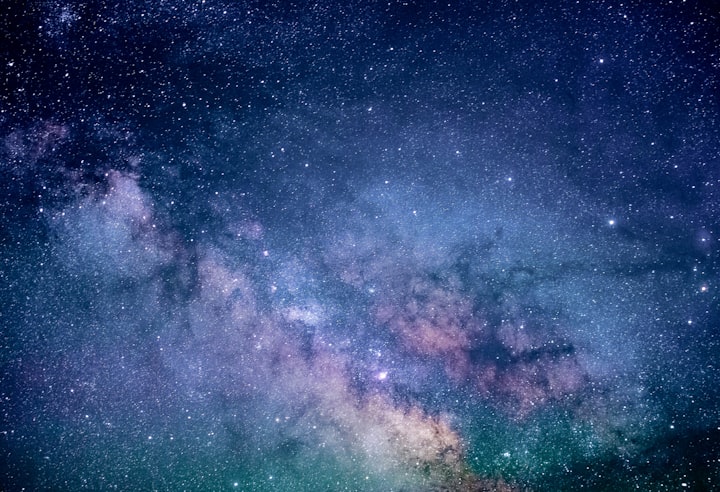Why Do Stars Twinkle?
Did you know you cannot see as many stars in space?

Star gazing is one of my favorite activities.
On a clear night, we can literally see millions of stars in the sky. If there is no light pollution or weather obstruction, the sky becomes one big screen with twinkling stars.
We can even see a portion of our Milky Way galaxy, as seen in the picture above.
I was always curious about the space. But I had few questions.
- I always wondered, why do stars twinkle?
- If we go up above the sky in space, would I be able to see more stars?
‹‹‹‹‹‹‹‹o0Ô0o››››››››
As I grew up and explored about space, I learned something very interesting.
We see more stars from the surface of the Earth than when we observe from space
Why do we see more stars from Earth than, when we are in space?
Earth is covered with an atmosphere.
Atmosphere is made up of various gases with varying densities and temperatures.
When light from distant objects, such as stars, travels through space and reaches Earth, it has to pass through the air.
Air is a gaseous medium composed of particles and gas molecules of different sizes.
Air is constantly moving in the sky, causing the light to bounce off these gases in two ways.
- When light travels from the space medium into the air medium, it bends, a phenomenon known as refraction.
- Additionally, when light passes through the atmosphere, it scatters, getting redirected in different directions.
Due to these refraction and scattering phenomena, the light from distant objects becomes more visible.
Why we cannot see stars in Space
In space, there is no atmosphere.
No air.
No gas.
It is a big vacuum.
Since there is no gas, light does not undergo refraction and scattering.
As a result, in space, the light from distant objects is barely visible.
If we are in space, and observe the darkest region of the sky, such as deep space, the light from a distant object may not be visible at all.
In areas of space where there is minimal light pollution, such as in deep space or regions far from stars, faint objects that emit very little light or are very distant may not be visible to the naked eye or even with telescopes.
That is why we do not see as many stars when observed from space.
In space, if you try to view the sky in the presence of the Sun or the Moon, you may not see any stars due to light pollution. This is similar to watching stars during daylight as observed from Earth's surface.
Why do stars twinkle?
Atmosphere is in constant motion. There is always some form of turbulence.
When the layers of gases in the atmosphere move, the light from a distant object goes through varying degrees of bending and scattering.
This continuous bending and scattering of light appears to brighten and fade away.
This causes twinkling when observed from the surface of the Earth.
Sometimes, you may also see colorful twinkling.
But light reflected from a large planet or stars that are very close to the Earth does not twinkle.
Because of the apparent size, the twinkling effect is minimized. We may observe that the evening star, such as Venus, Mars, and other larger planets such as Jupiter do not twinkle.
‹‹‹‹‹‹‹‹‹o0Ô0o›››››››››
This was the simplest non-scientific explanation of why we can see so many twinkling stars from Earth's surface.
I hope you enjoyed this short story.
Please feel free to comment.
About the Creator
Raghavendra S Rao
Passionate about life, people, animals, nature, and surroundings. Love flying airplanes. Educate everyone in various phases of life. Love technology. Learn new things. Help and contribute time and money to the less fortunate.






Comments
There are no comments for this story
Be the first to respond and start the conversation.